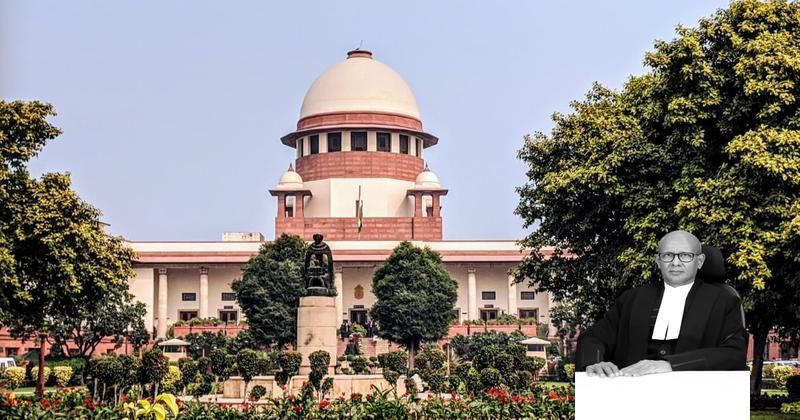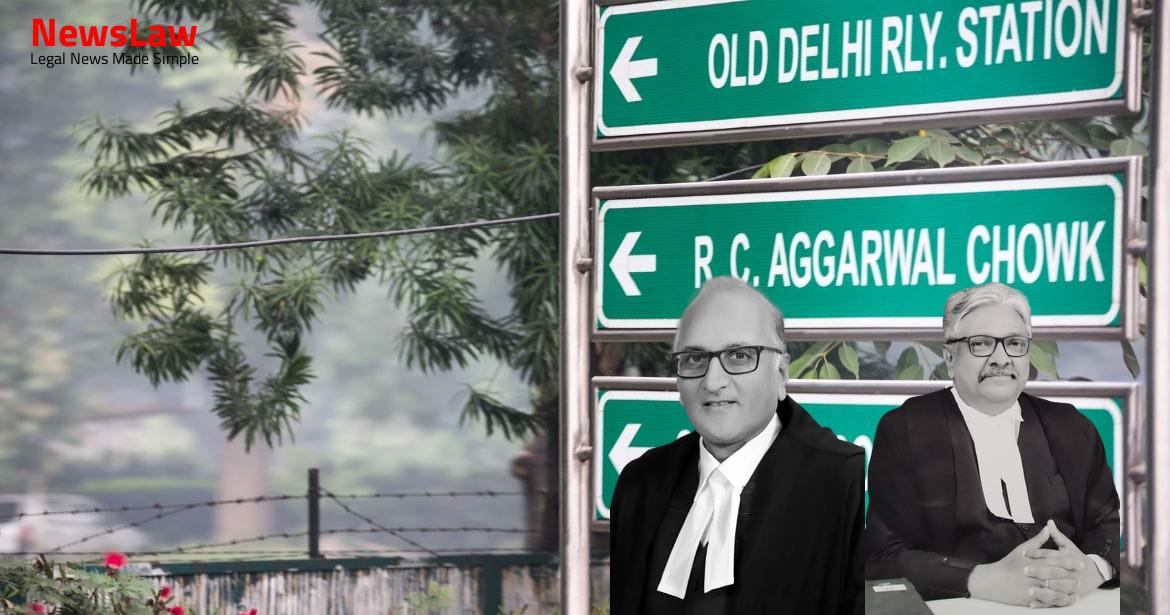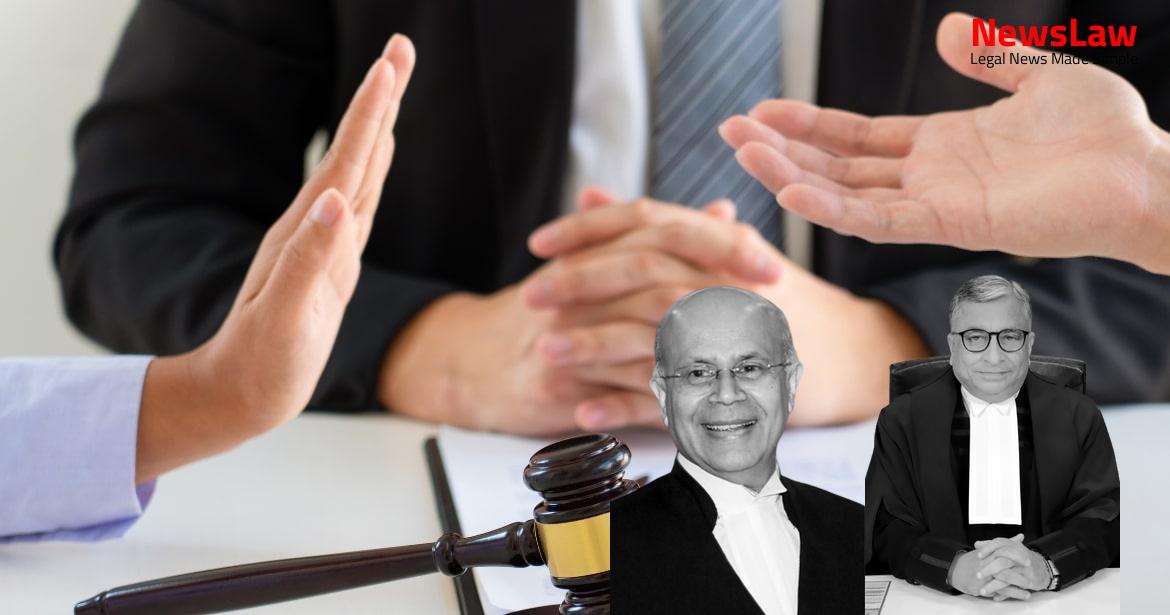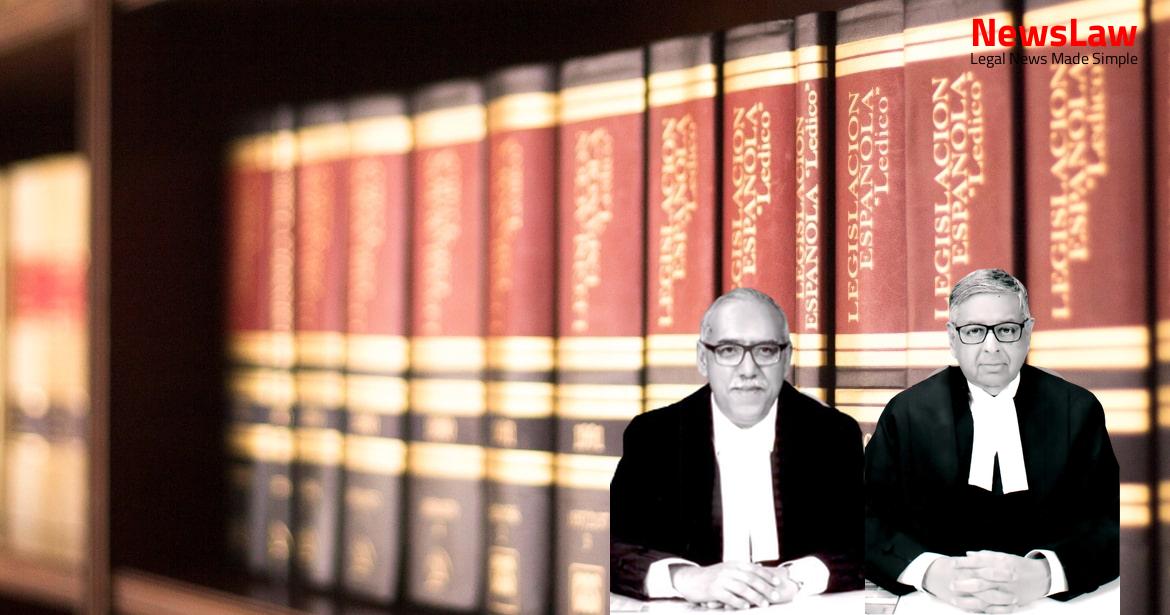In turn, W.P
Also Read: https://newslaw.in/case-type/civil/courts-analysis-on-bona-fide-requirement-in-eviction-petitions/
No 1067 of 1992 filed by Janardhan Subajirao Wide, the 2 respondent herein, arose out of the judgment dated 21.12.1991 of the learned 13 Additional District Judge, Pune, in Civil Appeal
No 1030 of 1987, confirming the judgment dated 30.09.1987 of the learned II Additional S.C. However, by its judgment dated 09.09.2009, the High Court reiterated its finding that the tenant had never parted with possession of the leased premises and had never left the premises, being a partner. Sufficient cause having been shown, delay in taking necessary steps 4 is condoned; abatement of the appeals is set aside; and legal representatives of the deceased sole respondent are brought on record.
These premises were let out to the tenant by the original landlord and landlady, the predecessors-in-title of the appellants, for the purpose of his hotel business under the name and style of Hotel Ambika.
It was also their case that the tenant parted with the running of the hotel and possession of the leased premises in favour of one Krishna B Shetty, thereby committing 5 breach of Section 13(1)(e) of the Act of 1947. Plaintiff No 2, speaking as PW1, stated that the suit premises was leased out to the tenant in the year 1975 for running his hotel business. He further stated that in November, 1985, there was a dispute between the tenant and Krishna 6 B Shetty, which led to the sealing of the premises, and finally the key thereof was handed over by the Sub-Divisional Magistrate to the tenant and, thereafter, Krishna B Shetty did not operate the hotel. In his examination- in-chief, he claimed that he had not given the hotel business to Krishna B Shetty or anyone else and that Krishna B Shetty was not given possession of the leased premises at any time.
He denied that Krishna B Shetty performed Satyanarayan Pooja on 07.01.1985, after execution of the partnership agreement, but admitted that the Invitation Card (Exh.44) issued on that occasion bore his name. The Trial Court held against the plaintiffs in so far as the ground under Section 13(1)(b) of the Act of 1947 was concerned, as the Advocate Commissioner’s second report (Exh.23) showed no trace of a toilet having been constructed in the leased premises. However, as regards the ground raised under Section 13(1)(e) of the Act of 1947, the finding was otherwise. The Trial Court also noted that the tenant admitted his signatures in the assignment agreement dated 15.01.1985 (Exh.49), whereby he had assigned his hotel business in the leased premises to Krishna B Shetty for 2,00,000/- and accepted 50,000/- as earnest money. While accepting that there was material to show that the tenant had assigned his business in favour of Krishna B Shetty, the High Court took recourse to the proviso to Section 15(1) of the Act of 1947 and held that it was permissible thereunder for a statutory tenant to transfer his tenancy rights even though the lease agreement prohibited such a transfer. According to the High Court, so long as the legal possession remained with the tenant, mere creation of a partnership agreement by the tenant for the purpose of jointly carrying on business in the leased premises would not amount to sub-letting.
Also Read: https://newslaw.in/case-type/criminal/analysis-of-evidence-and-courts-ruling/
More so, as the sole respondent entered appearance through counsel as long back as in January, 2011, and had ample opportunity to do the needful even if the said judgment did not form part of the record before the High 12 Court. Choudhari, learned counsel, would argue that execution of a partnership deed by the tenant, whereby a third party was inducted into the business as a partner, is of no consequence.
In Parvinder Singh ( supra ), this Court observed that if the tenant is actively associated with the partnership business and retains the use and control over the tenanted premises with him, maybe along with partners, the tenant may not be said to have parted with possession, but if the user and control of the tenanted premises has been parted with and the deed of partnership has been drawn up as an indirect method of collecting consideration for creation of a sub- tenancy or for providing a cloak to conceal a transaction not permitted by law, the Court is not estopped from tearing the veil of partnership and finding out the real nature of the transaction entered into between the tenant and the alleged sub-tenant. This Court observed in Mahendra Saree Emporium ( supra ) that the transfer of a right to enjoy immovable property to the exclusion of all others during the term of the lease is the sine qua non of a lease under Section 105 of the Transfer of Property Act, 1882, and a sub-lease would imply parting with, by the tenant, of the right to enjoy such property in favour of his sub-tenant. 15 (e) that the tenant has, since the coming into operation of this Act unlaw-fully sub-let the whole or part of the premises or assigned or transferred in any other manner his interest therein; or (ee)……..’ ‘Section 15 (1) Notwithstanding anything contained in any law, but subject to any contract to the contrary, it shall not be lawful after the coming into operation of this Act for any tenant to sub-let the whole or any part of the premises let to him or to assign or transfer in any other manner his interest therein and after the date of commencement of the Bombay Rents, Hotel and Lodging House Rates Control (Amendment) Act, 1973, for any tenant to give on licence the whole or part of such premises Provided that the State Government may by notification in the Official Gazette permit in any area the transfer of interest in premises held under such leases or class of leases or the giving on licence any premises or class of premises and to such extent as may be specified in the notification.’
The proviso to Section 15(1), however, authorizes the State Government to permit, in any area, transfer of interest in premises held under leases or a class of leases, by issuing a notification in the Official Gazette, duly delineating the extent to which such transfer is permitted. Given the clear proscription in the lease deed, duly endorsed by the explicit language of Sections 13(1)(e) and 15(1) of the Act of 1947, the very execution of the assignment agreement dated 17 15.01.1985 (Exh.49), whereby the tenant admittedly assigned his business in the leasehold premises in favour of Krishna B Shetty for 2,00,000/- and accepted a sum of 50,000/- as earnest money, was sufficient in itself to establish transgression of the lease condition and the statutory mandate.
Also Read: https://newslaw.in/case-type/civil/validity-of-tamil-nadu-land-acquisition-acts/
However, that principle has no role to play in the case on hand as the tenant did not stop short at executing the partnership agreement dated 01.01.1985 (Exh.48) but went on to execute the assignment agreement dated 15.01.1985 (Exh.49), whereby he assigned his hotel business in the leased premises to Krishna B Shetty and received earnest money also.
Case Title: YUVRAJ @ MUNNA PRAHLAD JAGDALE . Vs. JANARDAN SUBAJIRAO WIDE (DEAD) (2023 INSC 266)
Case Number: C.A. No.-002855-002856 / 2011



